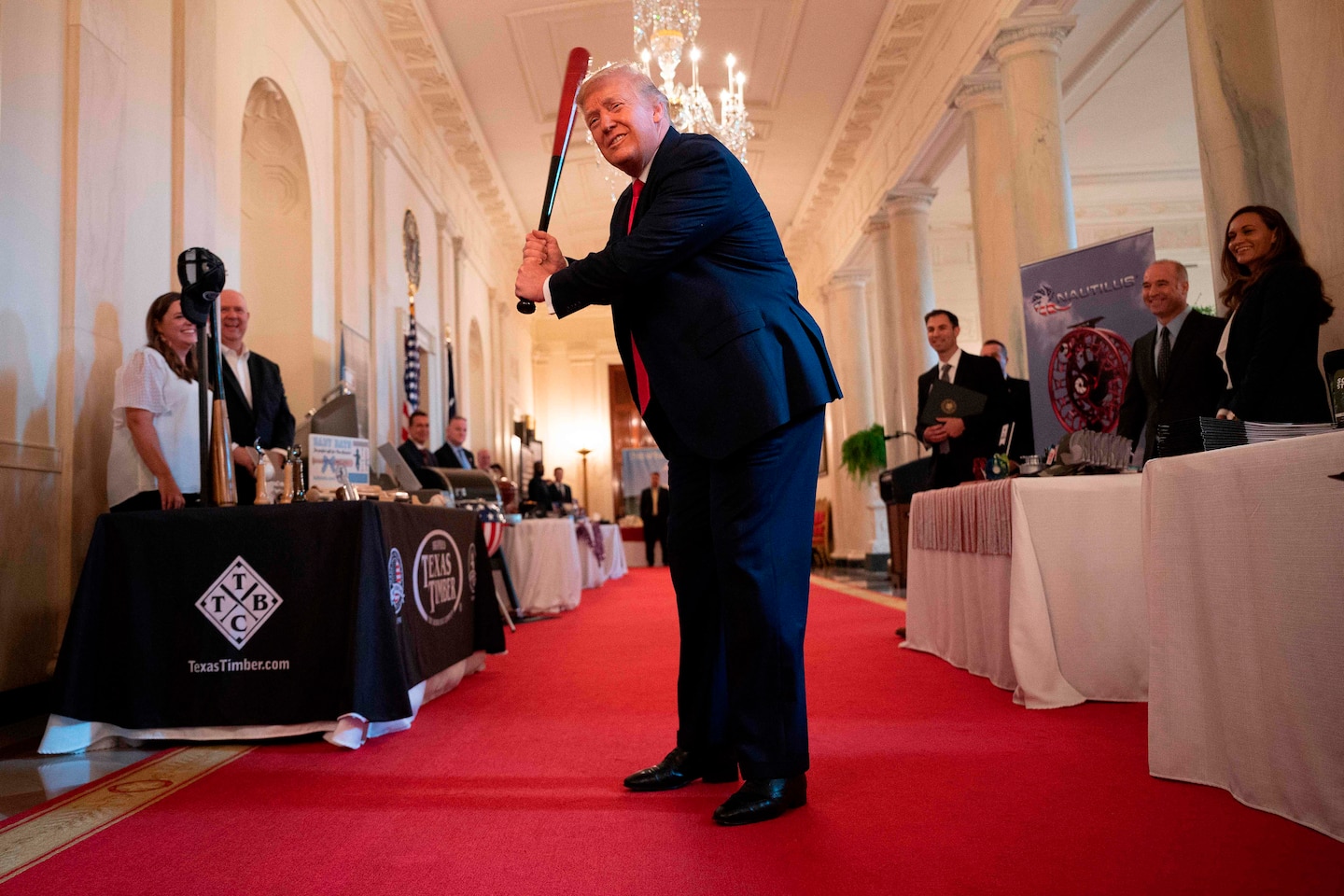Small-business owners are realizing they are the victims of another Trump con

Restaurants have been hit hard. So have beauty salons and retail shops. Earlier this week, a Yelp survey revealed that of the more than 130,000 establishments listed on its platform that temporarily closed their doors in response to covid-19, more than half will not reopen. This isn’t just a temporary setback. It’s all but a mass extinction.
Richardson holds the man he supported for president in 2016 — Donald Trump — responsible for the catastrophe. “I thought he’s a businessperson, not a politician, maybe he’ll mix things up,” Richardson said. “I could have lived with him till his response to covid.” Now? “If I can do anything to sway a person from Trump to Biden, that’s now my life mission.”
In 2016, many small business owners had a thing for Trump. They liked the idea of an entrepreneur like themselves in the White House. They believed his promise to do something about rising health-care costs. And, mostly, they stuck with him. A poll conducted by CNBC and Survey Monkey this January found 64 percent of small-business owners approved of the president’s performance. Now, some are realizing they are the latest victims of this serial con man.
America’s small businesses, which employ about half of all private-sector workers, have experienced a host of troubles for years. As laws intended to level the playing field between big players and their smaller competitors have fallen by the wayside, small businesses have struggled to keep up. Many are undercapitalized, with a few weeks of spare cash on hand, at most.
Trump campaigned on a promise to help U.S. business; instead, in line with his entire career, he’s governed as a flim-flam man and smash-and-grab thief. He’s kept few promises. Health care? Don’t make Richardson laugh. He was paying $1,800 per month for an Affordable Care Act exchange plan for his family in 2016. Now, he pays almost $4,000 for him and his wife.
Trump’s tax “reform” plan showered gains on the wealthiest — not to mention real estate dealers such as himself — but gave crumbs to most almost everyone else. Estimates show that it would take earnings of several hundred thousand dollars annually to significantly benefit from the law’s corporate tax reductions. According to Payscale, the median income of a small-business owner is $69,000 annually.
The same dynamic has played out during the covid-19 crisis. An April report from the Brookings Institution described more than half of the nation’s small businesses in serious danger of closing their doors permanently if the pandemic wasn’t quickly contained. But the Paycheck Protection Plan, the main source of government aid for small companies, is riddled with bureaucratic hurdles. Many business owners were hesitant to apply for it, fearing that if they didn’t meet the stringent conditions for debt forgiveness, they could get stuck paying off an unwanted loan. More than half of the aid had to go to payroll, limiting the amount owners can spend on rent, utilities, supplies, insurance and other fixed costs.
Moreover, because the banks that processed the money were paid based on the size of the loan, they had little incentive to prioritize what most of us consider small businesses — our neighborhood restaurants, the local contractor — and instead allowed larger companies, such as chain restaurants that didn’t have more than 500 employees per location, to go to the front of the line.
Minority owners found it harder than whites to get approved. At the same time, a full on bevy of household names benefitted. Companies owned by entertainers Kanye West and Reese Witherspoon collected funds. Anti-tax advocate Grover Norquist did, too. Private equity funds muscled in. So did a number of business ventures connected to the family of Trump’s son-in-law, Jared Kushner.
All this infuriates Ryan Cullen, a registered investment adviser in Cincinnati who describes himself as “conservative,” and voted for Trump. He won’t do so again. “Millions of dollars went to people who supported Trump and people who are close to him,” he told me. “We cannot withstand four more years of Trump, his divisiveness, corruption, hatred and poor policymaking.”
As for Richardson, he said Trump didn’t handle the crisis like a businessman would. The president shouldn’t have tried to play down the pandemic or given out conflicting guidance, Richardson said. Trump needed to level with the American people, not offer denials and misinformation. Now, unemployment is again rising, and the virus is raging throughout huge swaths of the United States. Entrepreneurs learned the hard way that Trump’s supposed business prowess is as fictitious as a degree from Trump University.
Read more:






